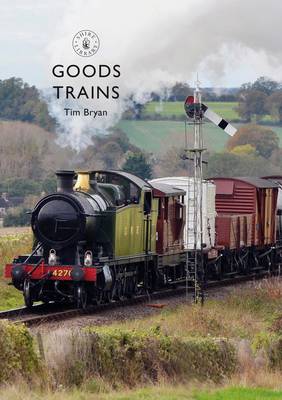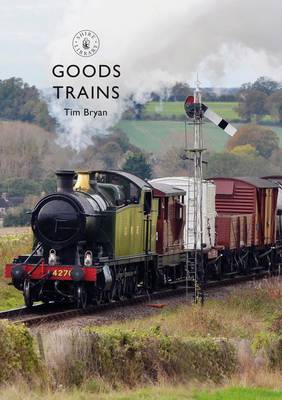
- Retrait gratuit dans votre magasin Club
- 7.000.000 titres dans notre catalogue
- Payer en toute sécurité
- Toujours un magasin près de chez vous
- Retrait gratuit dans votre magasin Club
- 7.000.0000 titres dans notre catalogue
- Payer en toute sécurité
- Toujours un magasin près de chez vous
Description
Goods transportation was the lifeblood of early railways, and remains a key part of rail services today. This concise illustrated guide illuminates the history of goods trains across Britain.
Have you ever watched wagon after wagon of a goods train thunder past and wondered where it is heading, what it is carrying, and how it works its way between the passenger services? While goods services now tend to be shrouded in anonymity, in past times they were celebrated, prominently advertised, and in many cases were the raisons d'être for a rail route. Throughout the nineteenth and much of the twentieth century, goods trains were the lifeblood of the nation, transporting precious raw materials, construction and industrial items, and fresh produce from coastal areas and farms into the centers of bustling cities. This informative illustrated history shows how rail freight has been carried since Victorian times, and how systems have been organized, from the train itself to the sidings, railway clearing houses, goods sheds and final destinations--whether villages, towns, cities, factories or docks. It also examines the basic rolling stock of these trains, from the humble coal wagon to today's hi-tech containers.Spécifications
Parties prenantes
- Auteur(s) :
- Editeur:
Contenu
- Nombre de pages :
- 64
- Langue:
- Anglais
- Collection :
- Tome:
- n° 873
Caractéristiques
- EAN:
- 9781784423995
- Date de parution :
- 11-08-20
- Format:
- Livre broché
- Format numérique:
- Trade paperback (VS)
- Dimensions :
- 150 mm x 210 mm
- Poids :
- 149 g

Les avis
Nous publions uniquement les avis qui respectent les conditions requises. Consultez nos conditions pour les avis.






